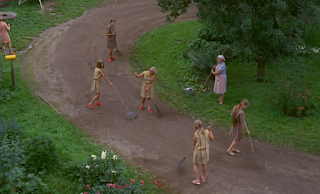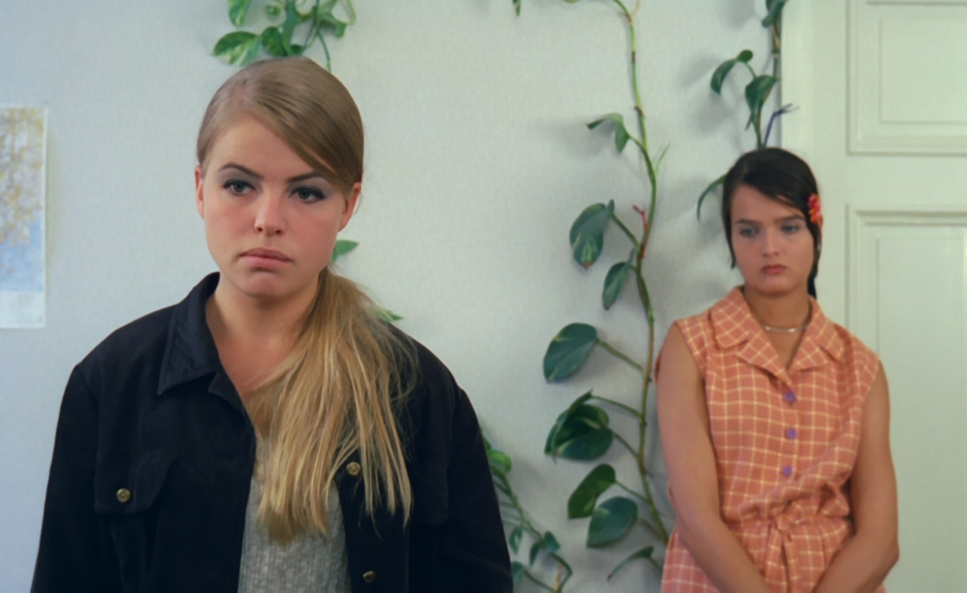Punahilkka - Little Red Riding Hood (1968)
RödluvanSakari Toiviainen
На русском языке
suomen kieli
Original article https://kavi.fi/fi/elokuva/117753-punahilkka

During the undertaking of his first and, so far, his last film, Timo Bergholm had already created a name for himself as a controversial leader in television and in theatre. He was first attracted to the radio cabaret series, Orvokki (Pansy), in which it vigilantly and sharply commented and brought attention to social conformities in the mid-1960s, such as with the church, the army, and the education system. In 1966, when Bergholm was first hired as a tv-theatre director and then during the next year as director, he quickly developed to be Eino S. Revo’s social conscious and the most prominent interpreter of a critical period, as well as, the easiest target for opposed minds.
As a starting point, FJ-Films and Jörn Donners production of Punahilkka was in the similar direction as Begholm’s late 1960’s tv-productions, in which the lively spirit of his Orvokki series scourged social prejudices, disadvantages and institutions. The subject entails the environment of an approved school and the fate of a girl leaving from there: suffocating, authoritarian, nearly resembling a military organised institution can only offer developing youth slim and rare chances of adapting to normal life. The film ends in a quite unconvincing disposition, in which according to the girl, quits her job and returns willingly back to the approved school. Her main struggles are with institutionalization and lack of freedom “internalized domination”.

“Punahilkka is not research about approved schools”, as the authors characterises its’ goals. “The approved school, here, in the film, is shown as an example of an institution, as an escalating pillar of authority in our society. It would be a good idea to choose similar things, for example, an army, a prison or a mental hospital.”
The hierarchy and rules of approved schools have created a pecking order with all the institutions and within the girls’ own circle. The film’s main character Anja, “Punahilkka (Little Red Riding Hood)”, is seen as a kind of spiritual leader. After having come to freedom Anja loses this position, she does not experience herself to be on the same level of importance and cannot control her environment nor her own place in it. Outside of the constructs of the vying nature in approved schools and consumer driven society are Anja’s two relationships with men: the forward-thinking car mechanic and the middle-aged security-driven pilot. One is competitive and driven and the other has reached an established position. Anja cannot figure out her place with either of the male figures- which leads her to drift off, to throw herself back to the safety of rules and disciplinary system of approved schools.

Punahilkka is the debut of a confident and controlled piece of work. Bergholm’s tv-film background, does however, leave a thin and slight residue. Anja’s story, with her depiction of people and relationships does not grow to the intensity and sensitivity she deserves, despite the skillful and moving performances by Kristiina Halkola and Lasse Pösti.
1975, 1997
English translation: Arlene Tucker, 2018
Images: Punahilkka (1968), d.Timo Bergholm
